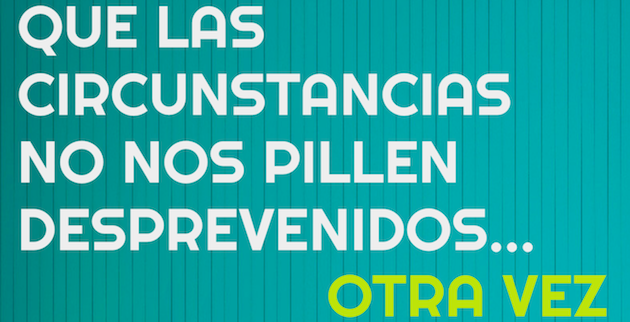The Spanish psychologist Lidia Martín published a book written during the months of Covid-19 confinement to help readers prepare for what could be “a long and complex situation”.
![Photo: [link]United Nations COvid-19 Response[/link], Unsplash (CC0)](https://cms.evangelicalfocus.com/upload/imagenes/5f3a591812268_covidonu940.jpg) Photo: [link]United Nations COvid-19 Response[/link], Unsplash (CC0)
Photo: [link]United Nations COvid-19 Response[/link], Unsplash (CC0)
We probably all have memories that stand out from the months of confinement.
In some respects, these experiences, combined with our reflections and thoughts, have created what reality was like for each of us during those months, says Spanish psychologist and author Lidia Martín.
“We were all caught by surprise to have our health threatened so seriously, to be locked in our houses, realising the scale that the pandemic had taken, with practically no time to react. My initial feeling, and I still feel this way, is that, although people were showing certain gestures of sensitivity and trying to contribute to a certain extent, the nature of people does not change so easily, so we should prepare in an intentional way for what could be a long and complex situation”, Martín explaines.
Her reflections have been captured in a book, written during the initial impact of the pandemic, aiming to help readers to not be unprepared as the virus hits again. According to Martín, it is “a workbook with a perspective that starts from the human, which is insufficient, and ends up landing fully in faith”.
The aims is to “helping and guiding in a process of reflection that places us in a more advantageous position with respect to this and any other crisis that we face in life”.

[photo_footer] Detail of the cover of the book. [/photo_footer]
The book, says Martín, dedicates special attention to the figure of Paul, an apostle who knew suffering and prison, to give a biblical approach to the question of uncertainty. “Paul was in prison when he wrote his letter to the Philippians, his life hung by a thread, because he did not know if he was about to be executed. As Christians we also have uncertainties while we are here, and we can learn to live as Paul lived and as Christ taught us, with supernatural joy and peace regardless of the circumstance that we have to live”.
“Uncertainty, in a sense, is and will always exist, because our mind is finite. Just because we believe in a God whose mind is not finite does not imply that our uncertainty disappears. What it means is that, in the middle of our sea, we have Jesus in the boat with us”.
Her book, Martín reiterates, is not a book that wants to create a sense of superficial optimism, but rather a contextualised vision of hope that stands out, powerful, in the midst of suffering. “God can allow situations that are very difficult. The valley of the shadow of death does not disappear, but His rod and His staff give us comfort”.
Reflection does not exclude taking practical steps, which is emphasised throughout the text. “The Covid-19 crisis is simply one possible scenario of the many that we can meet in life and that gives us pause. I use it to help clarify and explain certain concepts. This is what we are living with now and I have the feeling that, when we move too much into the abstract, away from the situation at hand, people tend to get lost and not apply what has been learned. The principles that I address apply to any adverse circumstance in life, so this is much more than just a book about the Covid-19 crisis”.
For Martín, it is worrisome to see examples of sensitivity that are generated in response to the uncertainty caused by the pandemic, but which, she believes, do not deepen the sense of the general problems that we face. “I think human beings have a constant inclination to deny the external reality and our internal nature. This is happening, we have largely created and perpetuated our daily actions and omissions”.
Therefore, she stresses as one of the central ideas of the book, collective improvement is preceded by individual change. “Societies are, ultimately, groups of individuals, and if the hearts of individuals do not change, societies do not either. Quite the contrary. Because we are much more than the sum of our parts, we not only add our bad, but we create something that goes much further, and has multiple and even exponential repercussions”.
In this sense, says the author, “people's hearts are the key, but we do not change if it is not for very good reasons and in circumstances that pressure is enough. I believe in a certain level of personal change when the motivation is powerful, but that motivation changes with the circumstances and very based on our emotions, so it ends up not serving much in the medium and long term”.
“I do not believe in willpower, but I discover in Paul's God, who is also mine, someone who puts in me both the desire and the means, out of his good will. And that fills me with hope”, she said.
This book is available in Spanish and can be downloaded for free here.

Las opiniones vertidas por nuestros colaboradores se realizan a nivel personal, pudiendo coincidir o no con la postura de la dirección de Protestante Digital.
Si quieres comentar o